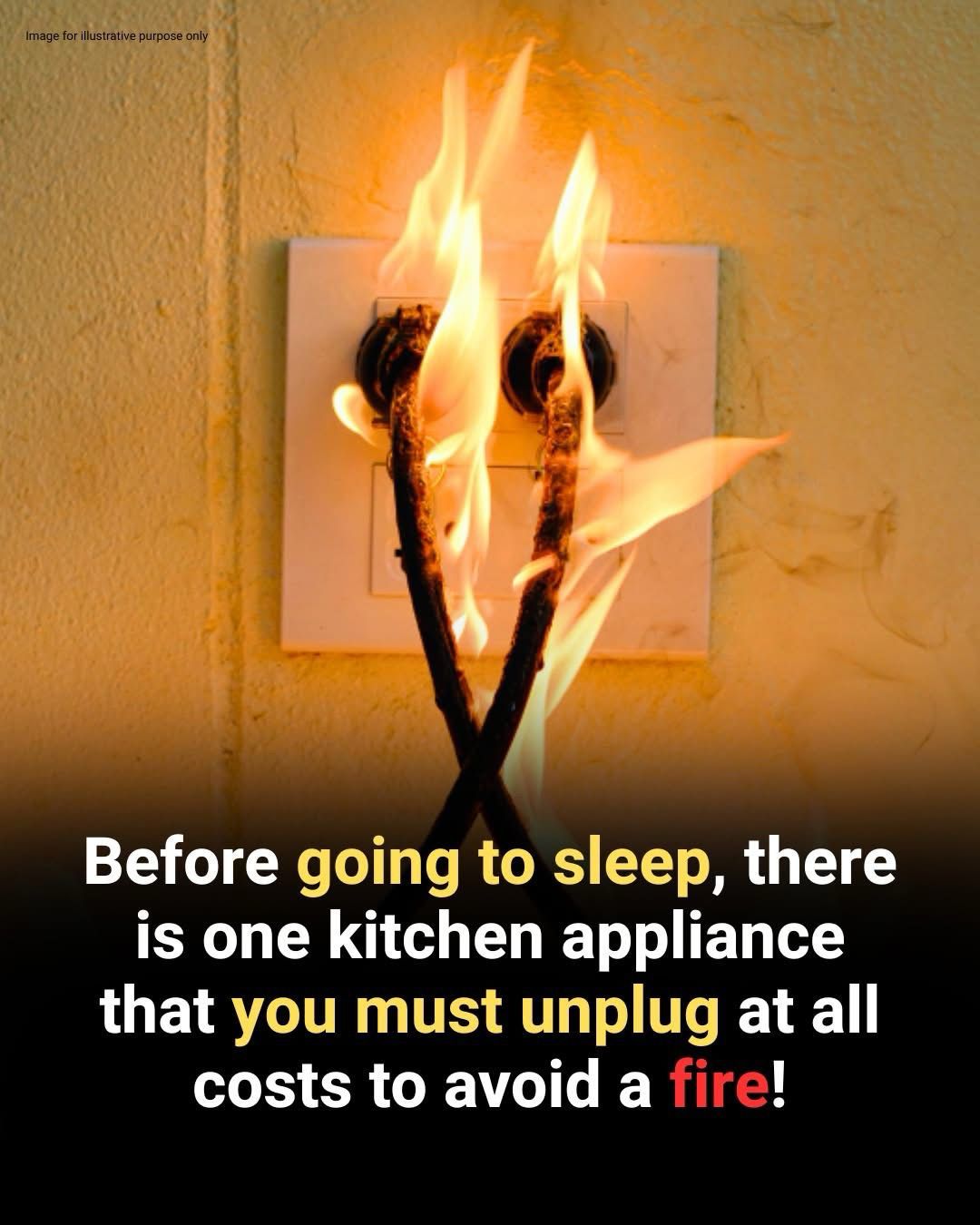Unplugging household appliances when they’re not in use might seem like a small act, but it can have a big impact on your home’s safety and your wallet. Many appliances continue to draw electricity even when turned off, a phenomenon known as phantom or standby power, which can account for up to 10% of a household’s electricity bill. Beyond cost, these idle devices can also pose a fire hazard and reduce the lifespan of your electronics.

Taking a few seconds to unplug devices like toasters, coffee makers, air fryers, space heaters, and microwaves can reduce energy waste, limit fire risks, and help your appliances last longer. Toasters and toaster ovens, for instance, are often forgotten after breakfast, but built-up crumbs can catch fire if the appliance malfunctions. Even after being switched off, these devices still draw power and can overheat or spark during a power surge. Keeping them unplugged, especially when surrounded by flammable items like paper towels, is a simple way to make your kitchen safer. Coffee makers may seem harmless, but many models keep using power to heat water or maintain clock displays. Over time, this drains energy and strains the machine’s components.
A malfunction in the heating element can cause overheating or even a fire, particularly if the appliance is near curtains or paper. While auto-shutoff features might stop brewing, they don’t stop electricity from flowing. Unplugging your coffee maker after each use not only conserves energy but also prevents unnecessary wear and tear. Air fryers are another trendy kitchen gadget that consume power even when idle. Digital displays and memory settings require a constant flow of electricity, and if the appliance has leftover grease or residue near the plug, it could increase the risk of a short circuit.
Malfunctioning heating elements may cause it to warm up unexpectedly, posing a danger especially if placed near flammable materials. Waiting for the appliance to cool and then unplugging it is a simple routine that can improve safety and lower your electricity bill. Space heaters are well-known for their potential fire risks, especially if left plugged in and forgotten. They often continue drawing power when turned off and can overheat or short-circuit if tipped over or jostled. Older units may lack safety features like automatic shutoff or temperature sensors, making them more dangerous. Overloading circuits with space heaters plugged into extension cords is another fire hazard. Unplugging your space heater after every use is one of the smartest habits you can build during colder months. Microwaves are surprising contributors to phantom energy use.
Their clock displays and internal circuits stay active 24/7, and that power use adds up quickly. Older microwaves or those with food residue inside can become fire risks if something malfunctions. Sparks or short circuits can ignite surrounding materials like paper towels or cookbooks. Unplugging the microwave when not in use also gives you the chance to clean it regularly, keeping it more sanitary and reducing potential danger. Aside from unplugging appliances, a few extra safety tips can further protect your home. Regularly inspect cords and plugs for signs of wear, such as fraying or cracks, and replace them immediately if damaged. Avoid overloading power strips, especially with heat-generating appliances, and invest in surge protectors to shield valuable electronics from power spikes. Make sure smoke detectors are installed and functioning properly in every room that uses appliances, not just the kitchen. Change their batteries twice a year and keep flammable items away from heat sources. Educate your children on which appliances are off-limits, and keep instruction manuals handy in case you need to troubleshoot. When it comes to saving electricity, a few smart habits go a long way. Replace old lightbulbs with energy-efficient LED bulbs that use less power and last longer. Adjust your thermostat by a few degrees to ease the load on your HVAC system. Do laundry using cold water and full loads, and keep your fridge set between 37°F and 40°F for best efficiency. Use ceiling fans to circulate air and rely less on air conditioning. Smart power strips can cut power to devices in standby mode, and unplugging chargers and small electronics when not in use prevents unnecessary energy use. Every little action adds up. In conclusion, creating the habit of unplugging appliances not only helps save money but also increases home safety and extends the life of your electronics. With minimal effort, you can reduce phantom power, prevent potential fires, and cut down on electrical wear. Begin with one device and build from there—it’s a habit your future self will appreciate.





